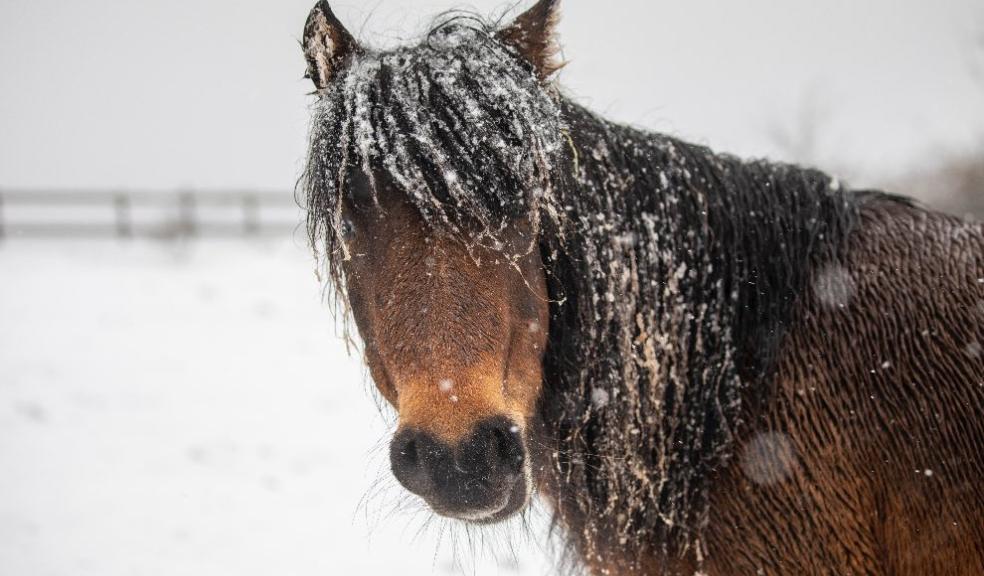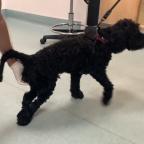
Tips to keep your pets warm amid wintery showers forecast
As temperatures start to plummet, and with snow appearing in some areas of the UK, the RSPCA is urging people to follow its urgent advice to keep pets, farmed animals and wildlife happy and healthy this winter
As The Met Office issues new weather warnings affecting parts of England including East Anglia and parts of the North-East - the animal welfare charity is calling on people to do their bit to help animals.
RSPCA Pet Welfare Expert and Veterinary Nurse Lauren Bennett said: “The cold weather seems to have suddenly sprung upon us so please spare a thought for our animal friends who may be feeling the chill this winter.
“We can all take simple steps to help keep our pets, farmed animals and wildlife safe this winter, and if we all do our bit, we can create a better world for every kind.
“Sadly, some animals are facing a really tough winter and the cold weather will make it even more perilous. To help the RSPCA rescue more of the most vulnerable animals from cruelty and neglect this winter, please support The Big Give Back to Animals and donate today.”
Top cold weather tips
1 Keep a close eye on outdoor pets like rabbits and guinea pigs; and consider moving them inside if the temperature drops, but try to give them lots of time and space to exercise properly. If outside, give them lots of extra bedding and protect their home from adverse weather with insulating, ventilating covers, and keep them in a sheltered position raised off the ground by four inches and with a sloped roof.
2. Ensure cats have constant access to the house or to a warm, indoor area such as an outbuilding or barn, and keep their bedding warm, dry and away from any draughts.
3. Antifreeze and rock salt are poisonous to pets so keep any stored products out of their reach. If you’re concerned your pet may have ingested anything they shouldn’t, please speak to your vet immediately.
4. If your dog feels the chill, you can buy a special coat or jumper to keep them warm when you’re out walking. Make sure it fits well and that they can still go to the toilet freely.
5. When walking your dog or riding your horse in the dark, wear reflective clothing.
6. Keep your pet dog away from frozen ponds, lakes or rivers which can pose a danger, and check their paws when you get back from walking to ensure they’re not covered in grit and don’t get impacted with snow.
7. If you keep pet birds in aviaries, coops, or runs, then you should also protect them from the cold weather. Provide plenty of dry, warm bedding such as straw and cover enclosures to keep the wind and rain out. Birds will eat more to keep warm in cold conditions so ensure they always have access to plenty of food and fresh water, ensuring water does not freeze over.
8. If you have a fish pond, check it every day to make sure the surface is not entirely frozen as poisonous gases can build up under the ice. Don’t break the ice as this can harm the fish, but carefully place a saucepan of hot water on the surface to gently melt a hole in the ice. Never tip boiling water straight onto the pond either, as this can also harm or kill any fish living there. And never try to use antifreeze or salt to thaw frozen ponds or birdbaths.
9. Horses and farmed animals need extra care in the winter, such as adequate shelter to escape bad weather, extra feed as grass can be sparse, and regular checks on water troughs to keep them clear of ice. Give added protection with a waterproof rug, ensure they have access to dry standing areas, and check hooves regularly for loose shoes or signs of problems such as mud fever. Farmers and smallholders should give extra consideration to young animals and whether they need extra protection from the cold weather.
10. Wildlife may need an extra helping hand during tough, winter conditions. Birds can struggle to find food during the winter months so, to help them stay strong over this period, householders can leave out extra food for them (like suitable seeds and grains such as oats and sunflower seeds; cooked pasta or rice; boiled potatoes, cheese, or uncooked unsalted bacon rind; raisins and sultanas; net-free fat or suet balls; apples, pears and soft fruits; insects such as mealworms or waxworms).
11. Keep bird baths free of ice, leave out bowls of clean water, and keep feeders clean.
12. Carefully check any wood or leaf piles for wild animals such as hedgehogs, frogsand mice before lighting any fires or bonfires. If you find wild animals in hibernation, be sure to leave them be.
13. We don’t advise keeping dogs outside in any weather. Meeting the needs of dogs when they’re kept outside is very hard - and more so in very low temperatures. Owners should make sure their dogs have a clean, comfortable and dry sleeping area with a safe heat source so the temperature does not drop below 10OC.
The RSPCA’s ‘Big Give Back to Animals’
This winter RSPCA frontline rescuers are currently doing all they can to help animals experiencing the very worst cruelty and neglect - including those who have tragically been left to fend for themselves - while our incredible animal centres are finding new homes for countless rescued animals each year.
Sadly, incidents of animal abandonment being reported to the RSPCA are on course to be at a six-year high. That's why this winter, the charity has launched The Big Give Back to Animals to raise vital funds for their frontline teams, and to ensure they can keep being there for the animals who give us so much, and ask for so little in return.
More information on the RSPCA’s ‘Big Give Back to Animals’ can be found on the charity’s website as well as winter advice







